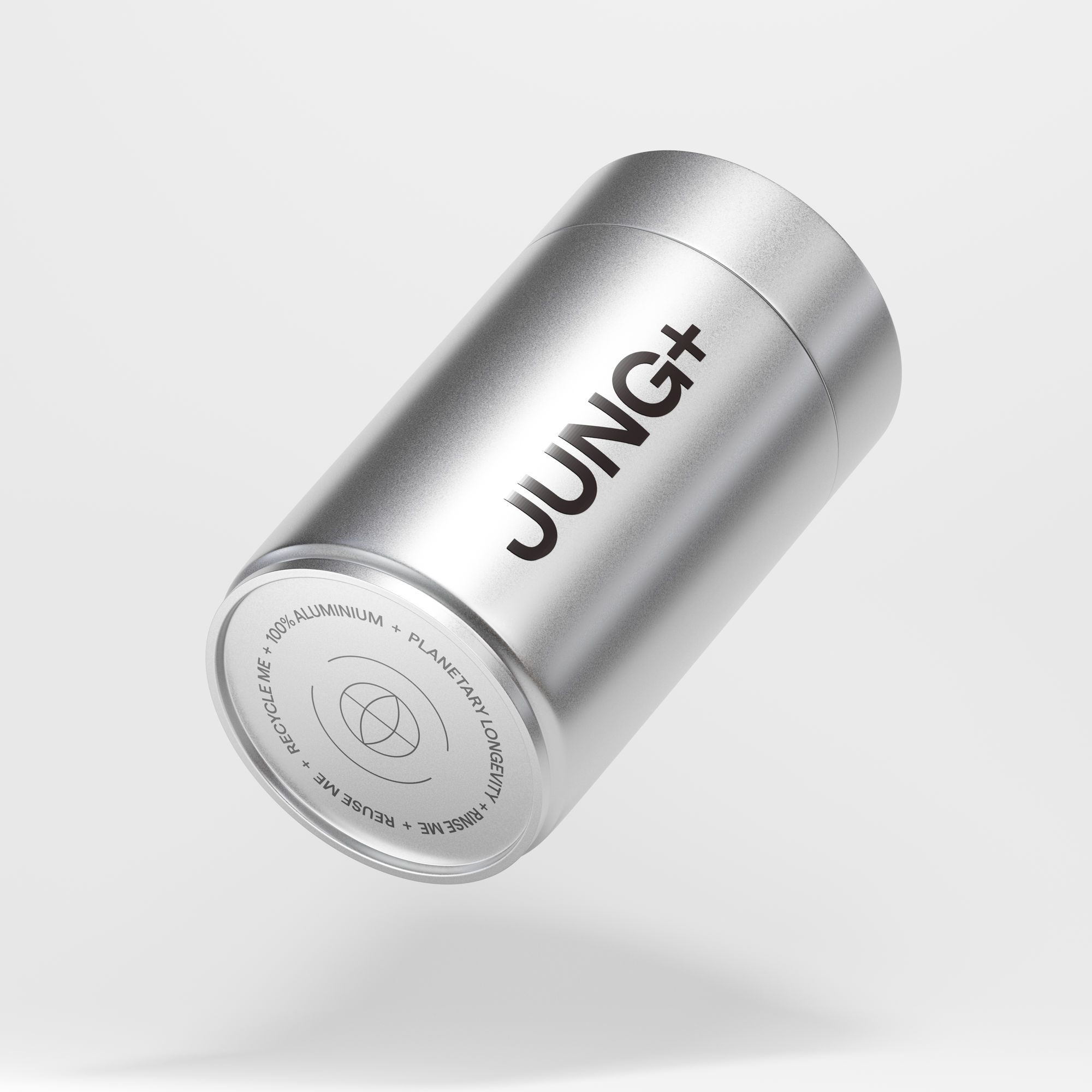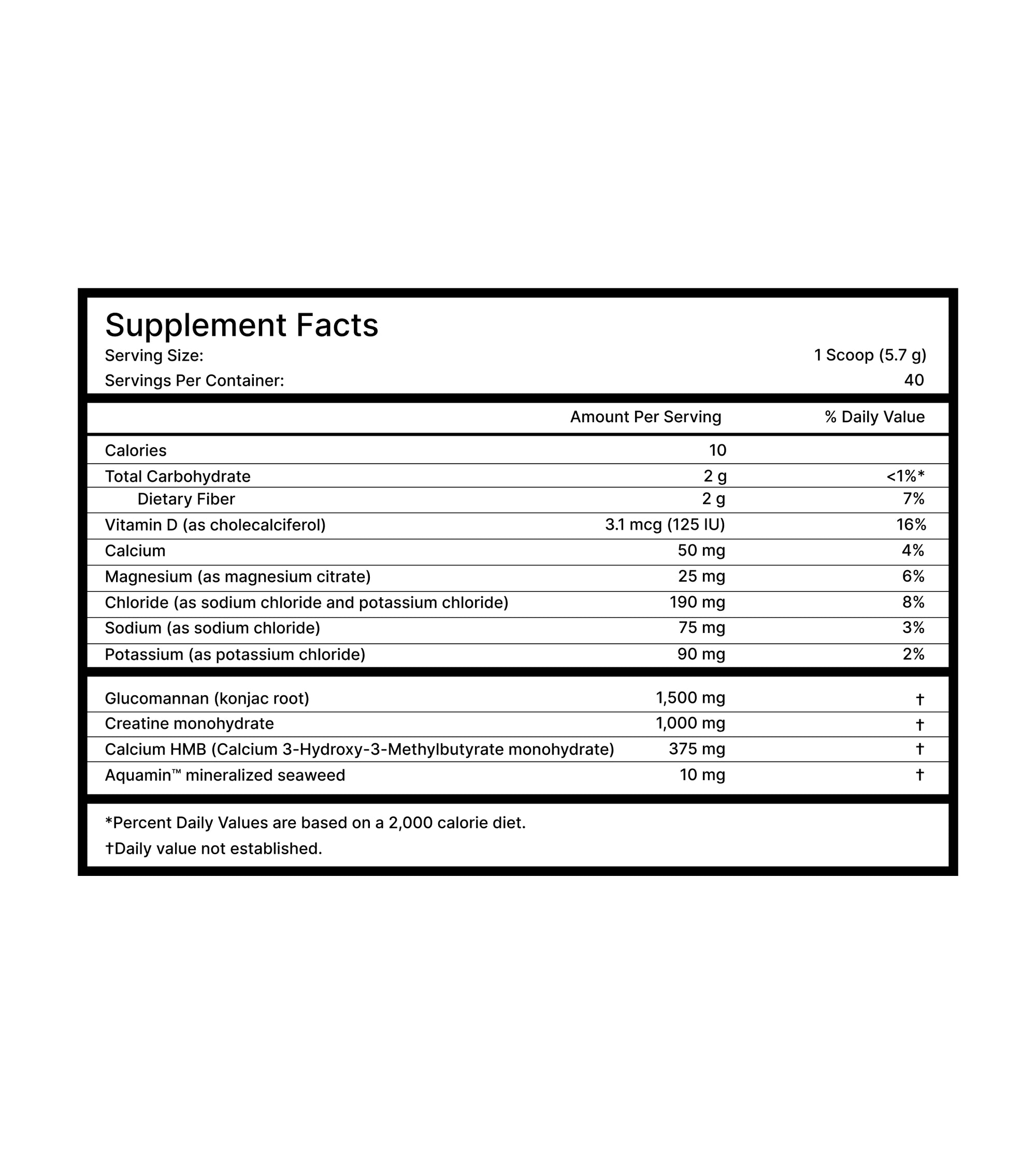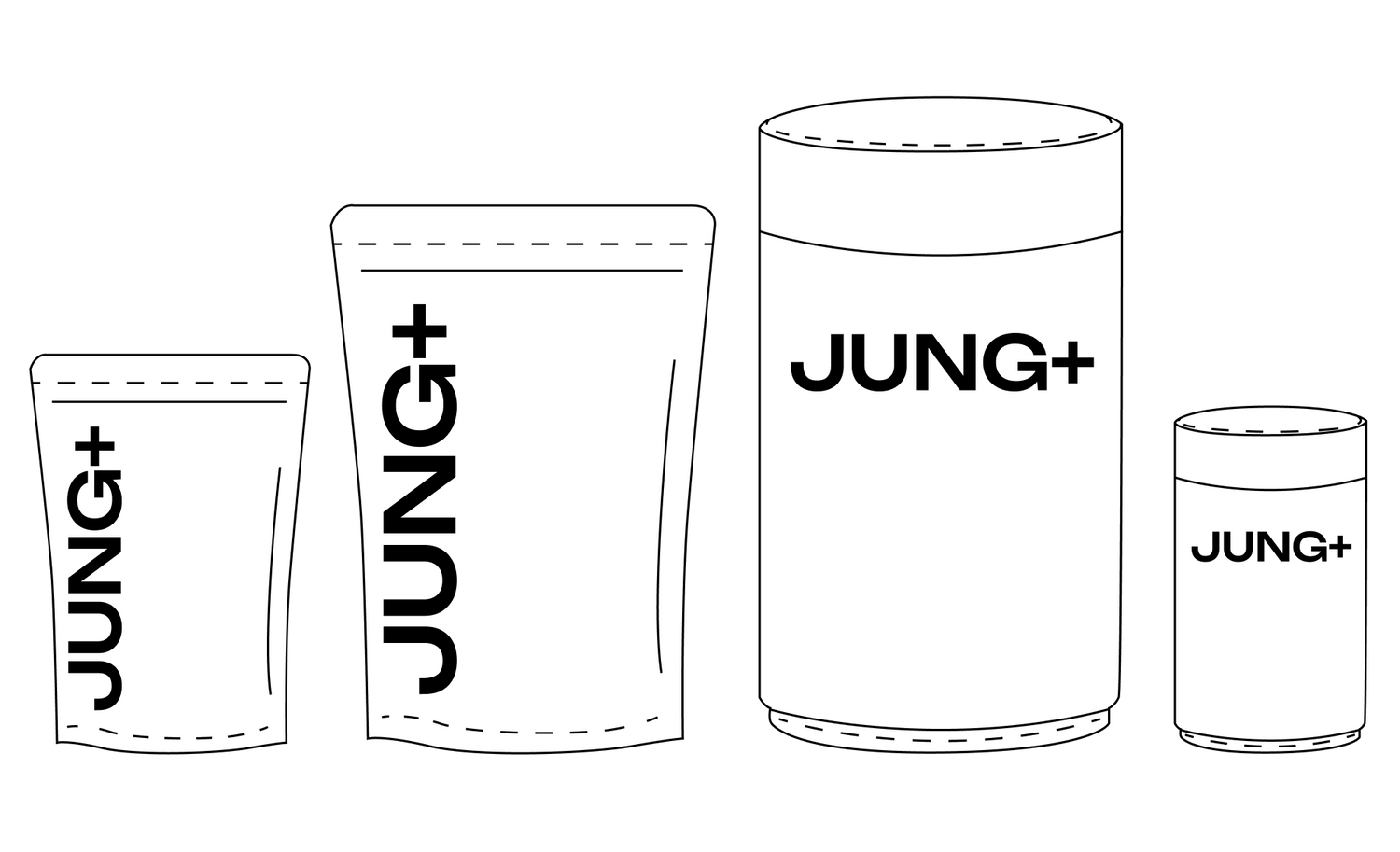Fasting Tonic™
Fasting and caloric restriction are among the most potent lifestyle hacks for longevity, yet they’re also hard and pose significant challenges. Enter Fasting Tonic™ - a groundbreaking precision drink mix engineered to ease and enhance your fasting experience. The innovative formula is built around natural micro-beadlets that expand into prebiotic jelly in your stomach, helping you feel full (literally!) without chemicals or caffeine, while healing the gut, all without breaking your fast. Fasting Tonic™ goes beyond mere appetite management. It replenishes vital micronutrients and electrolytes lost during fasting, ensuring optimal hydration and combating fatigue. Plus, it's crafted to safeguard against muscle loss, a major concern with fasting routines, making it a comprehensive ally for your fasting journey.
Couldn't load pickup availability
As seen in
Revolutionize fasting, without breaking your fast


Why it’s different
-
Fasting and caloric restriction
for whole body health
-
Ease Hunger, Feel Full Naturally
without breaking a fast
-
Replenish vital micronutrients
depleted during fasting
-
Preserve Muscle Mass
Even during fasted exercise
-
Helps Maintain a Healthy Weight
for Healthy Longevity
-
Eases transition to eating
Skip the Post-Fast Crashes
-
Revitalize Gut Microbiome
Defy Dysbiosis
-
Maintain peak hydration
for safer fasting
-
Choose Fasting or Calorie Restriction
Tailor to your lifestyle
How to use
you, like new
you, like new
you, like new
you, like new
you, like new
you, like new
you, like new
you, like new
you, like new
you, like new
you, like new
you, like new
you, like new
you, like new
you, like new
you, like new
you, like new
you, like new
you, like new
you, like new
you, like new
you, like new
you, like new
you, like new
you, like new
you, like new
you, like new
you, like new
you, like new
you, like new

Look inside
-
Glucomannan
1,500 mg
Glucomannan, an extraordinary, highly soluble fiber from konjac root, supports fasting and longevity by creating a sensation of fullness, aiding in appetite control and weight management. It can absorb up to 50 times its weight in water, forming a gel-like substance in the stomach and creating a natural sensation of fullness. Research has shown that it can help keep blood glucose levels steady, a critical factor in staving off insulin resistance and healthy longevity (13). Additionally, it's heart-healthy, potentially lowering cholesterol and reducing cardiovascular disease risk. As a prebiotic, it nourishes gut bacteria, promoting a balanced microbiome linked to longer lifespan (38).
-
Magnesium
25 mg
Magnesium plays a key role in energy production, bone health, and muscle function. Its importance is heightened during fasting or intermittent fasting, where it aids in energy production, maintains electrolyte balance, prevents muscle cramps, and supports mood and sleep. Beyond fasting, maintaining optimal magnesium levels is linked to a reduced risk of chronic diseases, contributing to longevity. Magnesium is so crucial for life that it is found in every single cell in the human body. (51-53).
-
Ca-HMB (Calcium β-hydroxy-β-methylbutyrate)
375 mg
Calcium β-hydroxy-β-methylbutyrate (Ca-HMB), naturally produced from leucine metabolism in protein-rich foods, is popular in fitness and bodybuilding. Research is examining its benefits for healthy aging and longevity (28). Ca-HMB stimulates protein synthesis and prevents muscle breakdown, aiding in combating muscle loss due to aging and benefiting athletes and active individuals by maintaining or increasing muscle mass (26-29, 54). Jung+ boosts its effectiveness by adding Vitamin D, further enhancing its impact (30).
-
Creatine
1,000 mg
Among the most studied compounds on earth, creatine, naturally produced from amino acids, is increasingly regarded as a potential longevity molecule. During fasting, it provides immediate energy for high-intensity activities, helping maintain physical performance (56). Supplementing with creatine boosts muscle mass and strength, essential for health and independence in aging (57). It also supports cognitive function, offering potential protection against neurodegenerative diseases like Parkinson's and Alzheimer's (58). Additionally, creatine aids in bone health, with long-term supplementation and resistance training improving bone mineral density in older adults (59). While found in milk, red meat, and seafood, you would need to drink 30 liters/7.9 gallons of milk to get an equivalent in one serving of Fasting Tonic™.
-
Sodium, potassium, Chloride
Sodium, potassium, and chloride, key electrolytes, are crucial during fasting and for longevity. In fasting, they maintain electrolyte balance; sodium helps retain water while, together with potassium and chloride, regulates cellular water levels for hydration (43, 45). Potassium, vital for a healthy heartbeat and muscle function, is the body's third most abundant mineral. Sodium controls blood volume and pressure, essential for muscle and nerve function (48). A potassium-rich diet may reduce cardiovascular disease risk, important for healthy aging (19, 49). Proper sodium, potassium, and chloride balance also ensures stable kidney function, contributing to longevity (50).
-
Aquamin™ mineralized seaweed
10 mg
Aquamin™, derived from the red algae Lithothamnion in the North Atlantic, is a natural multi-mineral supplement noted for its high calcium content and trace minerals like magnesium, iron, and zinc. Its uniqueness lies in the high bioavailability of these minerals, thanks to the algae's natural mineral absorption process (47). Aquamin™ supports bone health with its calcium richness and also benefits joint health, digestive wellness, and reduces inflammation. It contains at least 12% calcium, making it a potent supplement for various health needs (18, 40).
How can calorie restriction diets affect the 12 hallmarks of aging?
Learn more
Intermittent fasting is incredibly useful in aiding fat loss, building muscle, and increasing resilience. Done correctly, it's one of the most painless high-impact ways to live longer.
Dave Asprey, American author and speaker. Known as the father of biohacking.
Scientific studiеs
-
Intermittent fasting (IF) and periodic fasting (PF) are gaining recognition as safe approaches to enhance longevity and improve overall health by targeting cellular aging and disease risk factors while exhibiting minimal side effects. Intermittent fasting, lasting anywhere from 12 to 48 hours and practiced once every 1 to 7 days, as well as periodic fasting, lasting 2 to 7 days and performed once per month or less frequently, can potentially prevent and treat various diseases. This article overviews the different fasting strategies and their effects on longevity across various organisms, from yeast to humans. It establishes connections between fasting and the primary nutrient-sensing signaling pathways, emphasizing the advantages of fasting and refeeding periods. Additionally, it examines the therapeutic potential of IF and PF, specifically focusing on cancer, autoimmunity, neurodegeneration, and metabolic and cardiovascular diseases. We also address the potential side effects of IF and PF (7).
-
Impact of Electrolyte Supplementation on Fluid Balance and Athletic Performance During Intense Exercise
Water, comprising 60-70% of the human body, is vital for maintaining homeostasis and distributing essential nutrients like minerals, vitamins, and electrolytes. Proper hydration, influenced by factors like gender, environment, diet, and physiological processes, is particularly crucial during exercise to maintain electrolyte balance and prevent dehydration-related health issues such as increased blood viscosity and reduced oxygen delivery. During physical activities, hormones like ADH and aldosterone regulate water and electrolyte levels, but hydration with plain water alone can risk hyponatremia, leading to confusion and seizures. In a study comparing regular water with an electrolyte drink (3RINK) on exercise performance and recovery, 10 young men exercised on a treadmill and consumed either fluid before and after exercising. Results showed higher total body, intracellular, and extracellular water levels with 3RINK consumption post-exercise. While no significant changes were found in certain hormones, differences in hematocrit and sodium levels were noted based on the fluid type. The study concluded that electrolyte intake before and after exhaustive exercise enhances water retention, and exercise capacity, and reduces fatigue more effectively than water (61).
-
This study explored the effects of dietary fiber supplementation on gut microbiota and associated metabolites in relation to obesity indicators. In a 12-week double-blind, placebo-controlled trial with 53 overweight or obese adults, participants were randomly assigned to consume either a pea fiber supplement or a control. Blood and fecal samples were analyzed at the start and end of the trial. The study revealed that fiber significantly altered fecal short-chain fatty acids (SCFAs) and bile acids, with increased acetate levels and decreased levels of several bile acids. Gut microbiota was also differentially modulated, with an increase in SCFA producer Lachnospira in the pea fiber group, and a decrease in the control group. Notably, the change in participant body weight negatively correlated with their change in Lachnospira abundance. This study shows how pea fiber may influence the interaction between gut microbiota and host metabolism in obesity (62).
-
This study aimed to assess if supplementation with calcium β-hydroxy-β-methylbutyrate (HMB) and vitamin D3 could improve muscle function and strength in older adults. Participants over 60 years old with low vitamin D levels were randomly assigned to four groups: control with no exercise, HMB+D with no exercise, control with exercise, and HMB+D with exercise. The study found that HMB+D supplementation significantly improved lean body mass and knee extension peak torque in non-exercising participants at 6 and 3 months, respectively. Furthermore, HMB+D supplementation improved a composite functional index, including handgrip, Get Up, and Get Up and Go measurements changes, in non-exercising participants at 3, 6, and 12 months (30).
-
This study investigated the effects of creatine supplementation during a period of energy restriction in male resistance trainers. The participants were given a diet of 75.3 kJ (18 kcal) x kg(-1) x d(-1) (54.7% carbohydrate, 21.3% protein, and 24.0% fat) for four days. Creatine supplemented group demonstrated significant increases in muscle total creatine and creatine phosphate of 15-16% over the energy restriction period, whereas the placebo group had no changes in muscle creatine. Although both groups saw similar decreases in body weight and body fat percentage, the difference in fat-free mass was smaller in the creatine group. Furthermore, when adjusted for body weight, total work done during the sprints showed a trend toward being 3.8% higher in the creatine group. This suggests that creatine supplementation during short-term energy restriction might increase muscle creatine levels and potentially enhance sprint performance (63).
Your personal longevity kit, engineered for life
More than just a supplement, each product is a complete protocol and lifestyle program, synergistically formulated to work best together, and with ongoing use.
One-Time Purchase
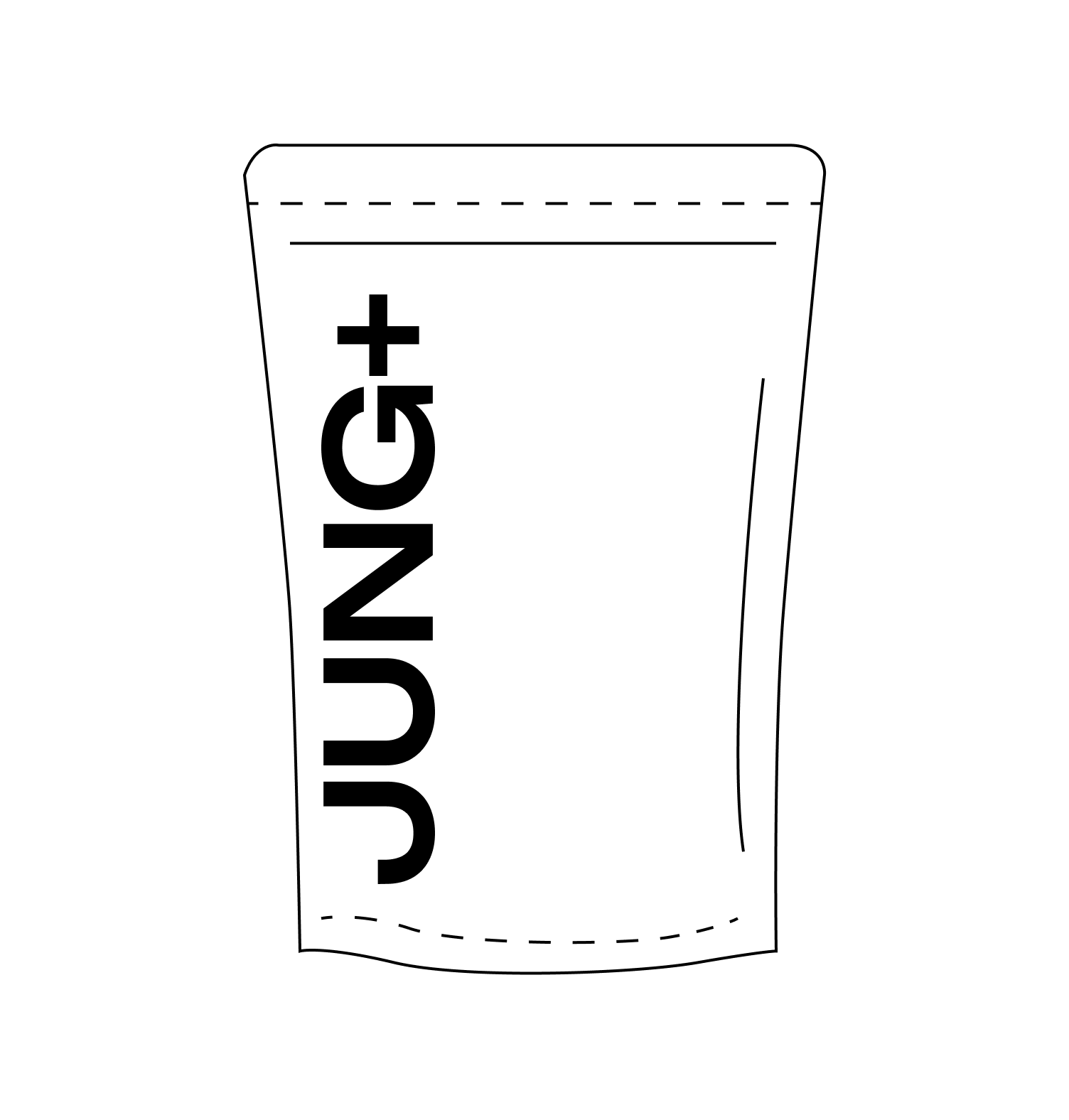
Receive a pouch filled with a one month supply of any product
Subscribe to unlock VIP benefits
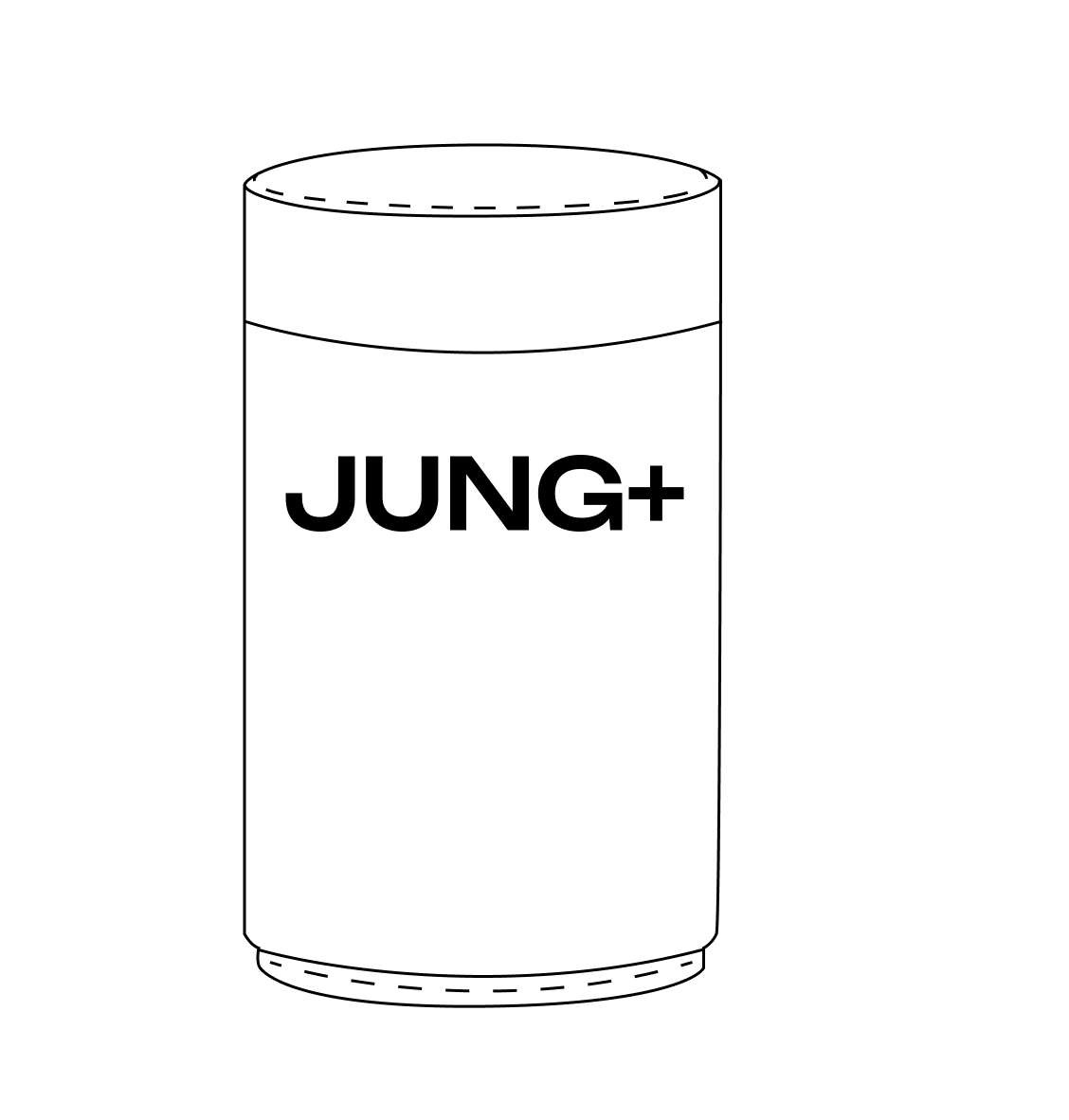
Your welcome kit includes a free storage canister to store your monthly delivery. 100% metal and recyclable, for you, and for the planet
+ Free coaching and scientific guidance, delivered straight to your inbox
+ Up to 30% off subscriptions, cancel anytime
+ White glove, subscribers-only access to the team for questions on your longevity protocol
+ Constantly updated formulas that track the latest science, so you don’t have to
+ First in line benefits for new products, special discounts, and features
Here's what our customers say
-
Feeling unstoppable
I forgot what it felt like to feel energized. I was so overrun with fatigue for many years that I just got used to it but once I started taking Jung, I began to feel more alert, have stronger performance both mentally and physically, and my mood elevated as well. In the gym, I was instantly able to lift more weights and feel that I was able to perform sprints more easily. I recover more quickly from the hard training that I do and overall, I feel fantastic!
-
Youth in a pill
Makes me feel amazing!
-
I feel like I have gotten younger
I simply feel like I have more energy to do everything. This is like a caffeine jolt without any of the side effects. I am hoping these results continue and build on what is currently happening? I'm willing to continue for a couple of months to find out.
FAQ’s
-
I plan a prolonged fast (multiple days). Can I use Fasting tonic?
-
How many servings of Fasting tonic a day I could take?
-
Can Fasting Tonic™ cause upset stomach?
-
Can I take Fasting Tonic™ during a ketogenic diet?
-
Will this break my fast?
-
How do I use this for Calorie Restriction or Weight Management?
-
I want something stronger - can I use two scoops in my cup?
-
I'm new to fasting. Do you have any advice?
-
Does Fasting Tonic replace all food during calorie restriction?
100% Money Back Guarantee
At Jung, we believe in the power of our products and want you to feel confident in your purchase. That’s why we’ve partnered with Onward to offer an unmatched money-back guarantee. With Onward VIP Protection, your purchase is covered by a full money-back guarantee. If you’re not completely satisfied, simply return the product for a hassle-free refund.
100% Money Back Guarantee
Pairs well with Longevity Foundation
Jung+ boosters have been precision engineered to work synergistically with our Master Formula. Combine your booster with Longevity Foundation to create a complete longevity protocol that targets aging at the cellular level, and goes further to turbocharge your health goals and amplify your unique lifestyle.


Longevity Foundation
Welcome to the future of anti-aging. Devised by world-leading longevity experts, our foundational formula works around the clock to tackle aging at its roots, addressing all 12 known drivers of aging with precision.
















References
-
Reference link
1. Gu L, Fu R, Hong J, Ni H, Yu K, Lou H. Effects of Intermittent Fasting in Human Compared to a Non-intervention Diet and Caloric Restriction: A Meta-Analysis of Randomized Controlled Trials. Front Nutr. 2022;9:871682.
-
Reference link
2. Fontana L, Meyer TE, Klein S, Holloszy JO. Long-term calorie restriction is highly effective in reducing the risk for atherosclerosis in humans. Proc Natl Acad Sci U S A. 2004;101(17):6659-63.
-
Reference link
3. Attinà A, Leggeri C, Paroni R, Pivari F, Dei Cas M, Mingione A, et al. Fasting: How to guide. Nutrients. 2021;13(5):1570.
-
Reference link
4. Waziry R, Ryan CP, Corcoran DL, Huffman KM, Kobor MS, Kothari M, et al. Effect of long-term caloric restriction on DNA methylation measures of biological aging in healthy adults from the CALERIE trial. Nature Aging. 2023;3(3):248-57.
-
Reference link
5. Calabrese EJ, Dhawan G, Kapoor R, Iavicoli I, Calabrese V. What is hormesis and its relevance to healthy aging and longevity? Biogerontology. 2015;16(6):693-707.
-
Reference link
6. Vaiserman AM. Hormesis, adaptive epigenetic reorganization, and implications for human health and longevity. Dose-Response. 2010;8(1):dose-response. 09-014. Vaiserman.
-
Reference link
7. Mattson MP, Longo VD, Harvie M. Impact of intermittent fasting on health and disease processes. Ageing Res Rev. 2017;39:46-58.
-
Reference link
8. Mattson MP. Challenging oneself intermittently to improve health. Dose Response. 2014;12(4):600-18.
-
Reference link
9. Shetty AK, Kodali M, Upadhya R, Madhu LN. Emerging Anti-Aging Strategies - Scientific Basis and Efficacy. Aging Dis. 2018;9(6):1165-84.
-
Reference link
10. Keithley J, Swanson B. Glucomannan and obesity: a critical review. Alternative therapies in health and medicine. 2005;11(6):30-4.










